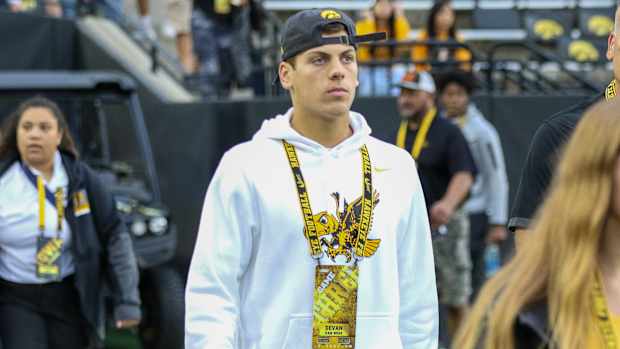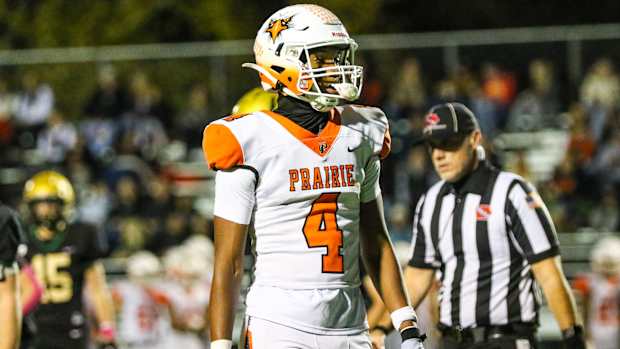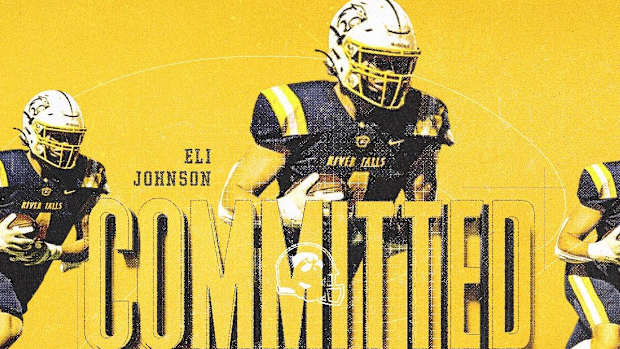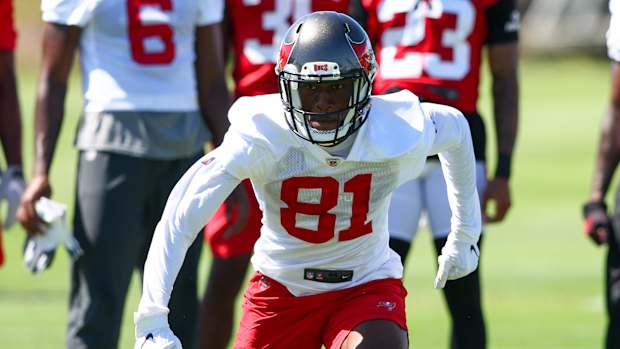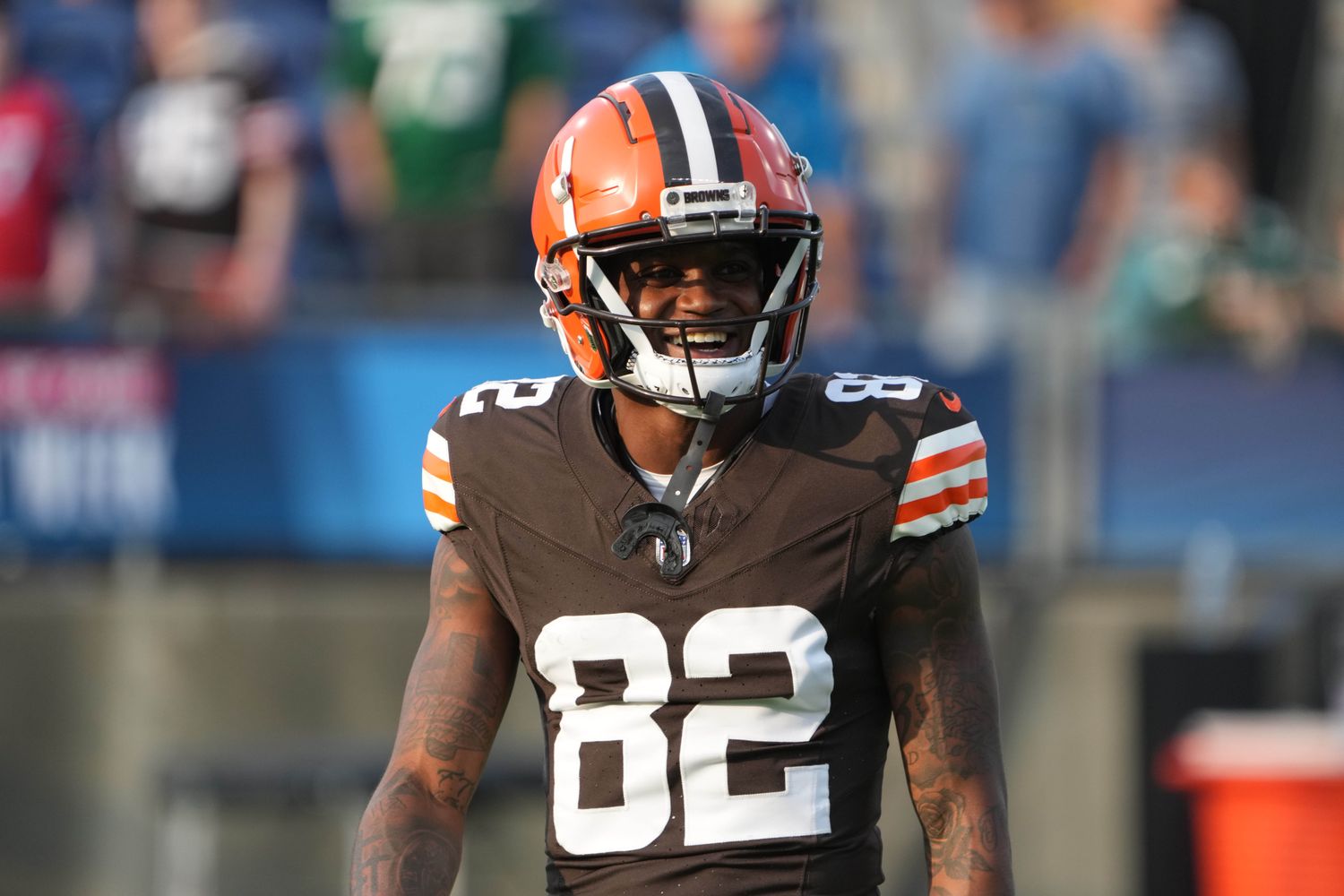Independent Review: Iowa Football Program's Rules 'Perpetuated Racial Or Cultural Biases'
Kirk Ferentz calls the style of how his program is run, "The Iowa Way."
The difference in how the Iowa football coach views it, and current and former players view it, was evident in an independent review into allegations of racial disparities within Ferentz's program.
The review by Kansas City, Mo., law firm Husch Blackwell, was released Thursday morning. It concluded that the program's rules "perpetuated racial or cultural biases and diminished the value of cultural diversity."
"The 'Iowa way' is described, perceived by many, especially our African-American student-athletes, as the white way," Iowa athletics director Gary Barta said on Thursday.
Barta and Ferentz, appearing at a press conference in Iowa City, said the report is the latest step in the process of reforming the culture within the program.
"Clearly there's a disconnect between the vision that Kirk has for the 'Iowa Way' and what he wants it to mean and the way it was being experienced by some of our student-athletes, and in particular our Black student-athletes," Barta said. "That's an area where we need to focus — how do we get the vision that Kirk has for the 'Iowa way' and have it be experienced the way he envisions, and that will be an important thing going forward."
"Gary's review asked me basically the same thing, my definition of the 'Iowa way,' and the goals haven't changed," Ferentz said. "It's graduation, it's having a good experience or maximizing your abilities and your experience in football, and those are both hard to do, and also being a good citizen, good character person, moral person outside the team activities.
"Those things haven't changed. I said the program is built on the foundation of discipline and accountability, and anytime you're involved in anything that's demanding, I don't care if it's a playwright, a novelist, whatever, you need those things to move forward, and mental toughness is certainly a big part of that. But all that being said, it's all about the delivery. It's all about the message. I think that's probably been the biggest learning experience here. Again, if we're asking our players to do something in the 'Iowa way,' then it's got to be fair, equitable and reasonable."
The review began in June after former players made allegations on social media concerning racial issues within the program. Strength and conditioning coach Chris Doyle, who was the focus of many of the allegations, reached a separation agreement with the university in June and is no longer with the program.
Besides the 26-page report released to the media on Thursday, four separate personnel reports on specific allegations made against current and former employees were summarized and provided to the university by Husch Blackwell. Those employees were not named in the review.
Brian Ferentz, Iowa's offensive coordinator and Kirk's son, and linebackers coach Seth Wallace were assistants who have been named in some of the allegations made by players.
Barta said there were no further personnel changes planned.
"Ultimately that's my responsibility," Barta said. "Obviously taking in all the information. It's not a done situation yet, but I felt confident enough to share with you today that we don't have any changes in employment in terms of who's here and who's not. But the follow-up is still ongoing in terms of moving forward."
It has been a tumultuous summer for the Iowa program. The comments on social media by former players, started by Twitter posts from former Hawkeye James Daniels, led to a team meeting on June 8 with current players that Ferentz and players have described as emotionally raw.
Since then, an advisory committee of former players has been formed to help make changes within the program.
"I've requested that of our leadership group as well as the advisory committee, to hold my feet to the fire," Ferentz said. "Let's make sure we're staying on track. Let's make sure we are not having five meetings and then dismissing it, that type of thing. I think we've all learned a great deal in the last two months, but it can't be yesterday's news. We need to keep the dialogue going, and I'll predict this, if we're doing our jobs right and doing them better, we're not going to have the kind of meeting we had on June 8. But that was a significant meeting, it was powerful and very impactful, and it got the ball moving forward fast, which was great."
Investigators interviewed 111 individuals, including 45 current and 29 former players on the football team and 36 current and former employees. Fifty-two percent of the individuals interviewed were Black, 42 percent were white.
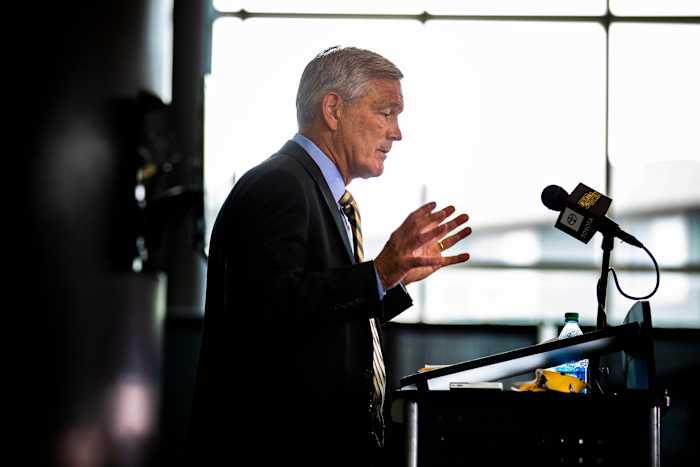
Iowa football coach Kirk Ferentz answers questions during Thursday's press conference in Iowa City. (Katina Zentz/Iowa City Press-Citizen-Imagn Content Services)
Among the findings:
• Players and coaches agreed that the Iowa football program is based on discipline and accountability. Several current and former players said some coaches have used that to "create and perpetuate an environment that bullies and demeans athletes, especially Black athletes."
• Several interviewees said the rules placed "significant, heightened stress" on players of all races.
• The philosophy of "The Iowa Way" mandates uniformity and discourages individualism, and many Black players expressed difficulty adjusting to the program's culture. The players said they felt they were required to conform to the "mold" of a clean-cut, white player.
• Numerous current and former players and coaches of all races described an environment in which a small number of coaches "felt empowered" to bully and demean athletes, especially Black athletes.
One player said an assistant coach told freshman players to "get on a boat and sail away from their old lives" to be successful in the program.
"That is not the word choice that should be in there," Ferentz said. "And again, we're all learning. I just learned something about that, but I take that in a different way.
"And really, our players aren't leaving their past behind them. No player should leave his past behind him because we're all a product of our past. There's a lot better way to state that, no question about that. The message should be what we're doing here is really important. I do talk to our players every year that what you've accomplished in high school, it's great, that's why you're here, you've been selected, but what we're interested in is what you can do moving forward, and that's for every player on our team, whether a fifth-year senior or first-year guys."
• Team rules on hair, clothing, jewelry and tattoos left many Black players "feeling isolated, targeted, and unwelcome in the program."
• Most players commented positively about Ferentz and his leadership of the program.
• Current players believe the environment of the program has improved significantly since June. The review concluded that players are "cautiously optimistic" that the coaching staff is listening to their concerns and having genuine conversations with them.
The review recommended Barta and Ferentz create "action steps" aimed at improving the culture, eliminating biases, encouraging players to report concerns of mistreatment, and emphasizing the university's policy statement against retaliation within the football program.
"This has been admittedly a challenging journey, and it will continue to be," Barta said. "But it's also a healthy journey, even though it's obviously been played out publicly. And we have a lot of work to do and we've made mistakes."
